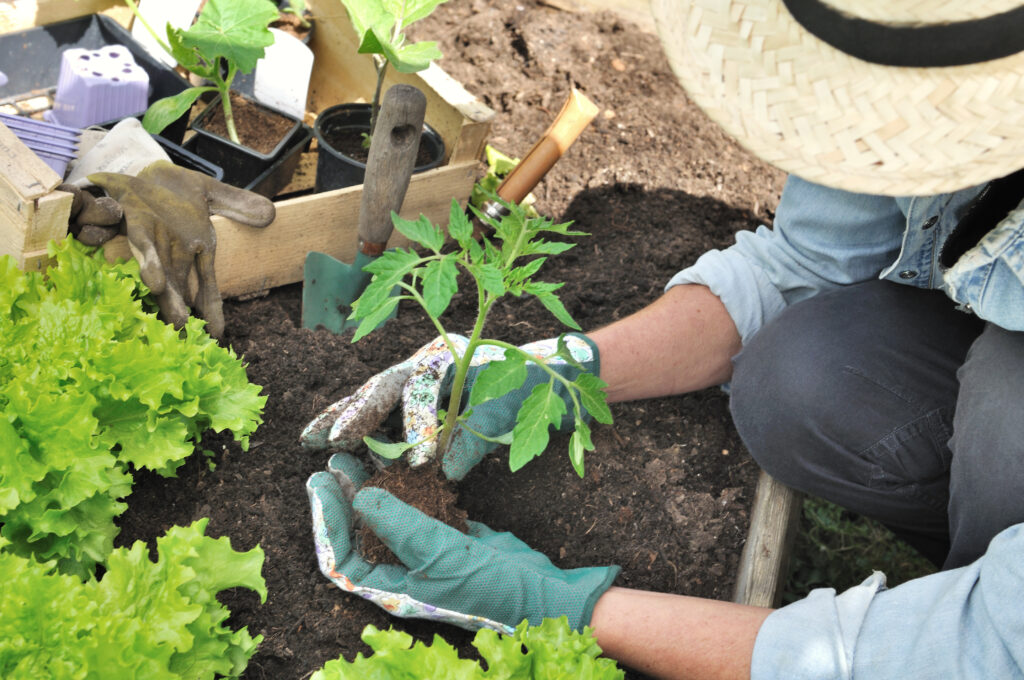
When I first started gardening, I thought fertilizer was something you just sprinkled on and hoped for the best. After a few sad tomato plants and some scrawny stubby carrots, I realized there’s a lot more to it — especially if you want to feed your plants naturally. Organic fertilizers not only give your crops nutrients, but they also feed the soil life that keeps your garden thriving for the long haul. If you’re aiming for a self-sustaining garden, this guide breaks down what to use, when to use it, and how it actually works. Once I added some bunny tea the right way it all started to change!
Table of Contents
What Makes a Fertilizer Organic?
Organic fertilizers come from natural sources — plants, animals, or minerals. They release nutrients slowly and improve soil health over time, unlike synthetic fertilizers that dump everything at once (and can actually harm soil life if overused).
Organic fertilizers work with the microbes, worms, and fungi in your soil, feeding them too — so you’re building long-term soil fertility while feeding your plants.
Healthy soil feeds itself when you keep adding organic matter — I use compost first and only reach for fertilizers when plants need a boost.
Understanding N-P-K (It’s Easier Than It Sounds)
Every fertilizer has an N-P-K rating — those three numbers on the bag. Here’s what they mean:
- N = Nitrogen (Leaf & stem growth)
- P = Phosphorus (Roots, flowers, fruit)
- K = Potassium (Potash) (Overall health & disease resistance)
Different crops need different nutrient balances.
- Leafy greens love nitrogen.
- Root crops need phosphorus.
- Fruit & flowers need potassium.
When in doubt, I go with balanced fertilizers like 5-5-5 for mixed veggie beds — safe and easy.
The Best Organic Fertilizers for Home Gardens
Here’s a breakdown of easy-to-use organic fertilizers, where they come from, and how they help:
| Fertilizer | N-P-K | Best For | Notes |
| Compost | Variable | Everything | Improves soil, adds nutrients, feeds microbes |
| Composted Manure | Variable | Leafy greens, heavy feeders | Use aged manure only (no fresh!) |
| Fish Emulsion | 5-1-1 | Leafy greens, seedlings | Fast boost, great for containers |
| Bone Meal | 4-12-0 | Root crops, bulbs | Slow release, great for planting time |
| Blood Meal | 12-0-0 | Leafy greens, nitrogen lovers | Quick boost, can burn if overused |
| Kelp Meal | 1-0-2 | General health, stress relief | Adds trace minerals |
| Alfalfa Meal | 2-1-2 | Tomatoes, peppers | Adds nutrients & organic matter |
| Worm Castings | 1-0-0 | Seedlings, houseplants | Gentle, perfect for starting seeds |
| Wood Ash | 0-1-4 | Root crops | Raises pH, use cautiously |
My top 3 go-to’s are compost, fish emulsion, and bone meal — they cover almost everything my garden needs.
When & How to Apply Organic Fertilizers
1️⃣ At Planting Time
- Mix compost, bone meal, and a little alfalfa meal into each planting hole for tomatoes, peppers, and squash.
- For root crops, add bone meal directly to the soil before sowing seeds.
2️⃣ During the Growing Season
- Every 2-3 weeks, give heavy feeders (tomatoes, peppers, squash) a liquid feed of fish emulsion or compost tea.
- Leafy greens can get a quick nitrogen boost from diluted fish emulsion.
3️⃣ Before Flowering & Fruiting
- Switch to fertilizers higher in phosphorus and potassium (like kelp meal or bone meal) to encourage flowers and fruit instead of leaves.
4️⃣ At Season End (Soil Building Time)
- Spread a thick layer of compost over your garden beds.
- In fall, plant a cover crop (like clover or rye) to naturally enrich the soil.
I keep a simple feeding schedule in my garden journal — so I never forget when I gave each bed a boost.
FAQs About Organic Fertilizers
Organic fertilizers do more than just feed your plants — they feed the whole ecosystem of your garden, from the microbes in the soil to the pollinators visiting your flowers. By working with nature instead of against it, you’re building a garden that gets stronger every year, with healthier soil and bigger harvests. Start simple, feed your soil like you’d feed your family, and you’ll be amazed at the difference it makes.
Take care,
Linnea
